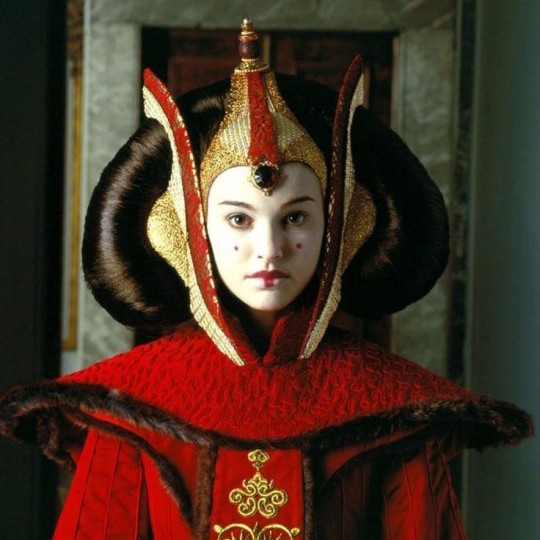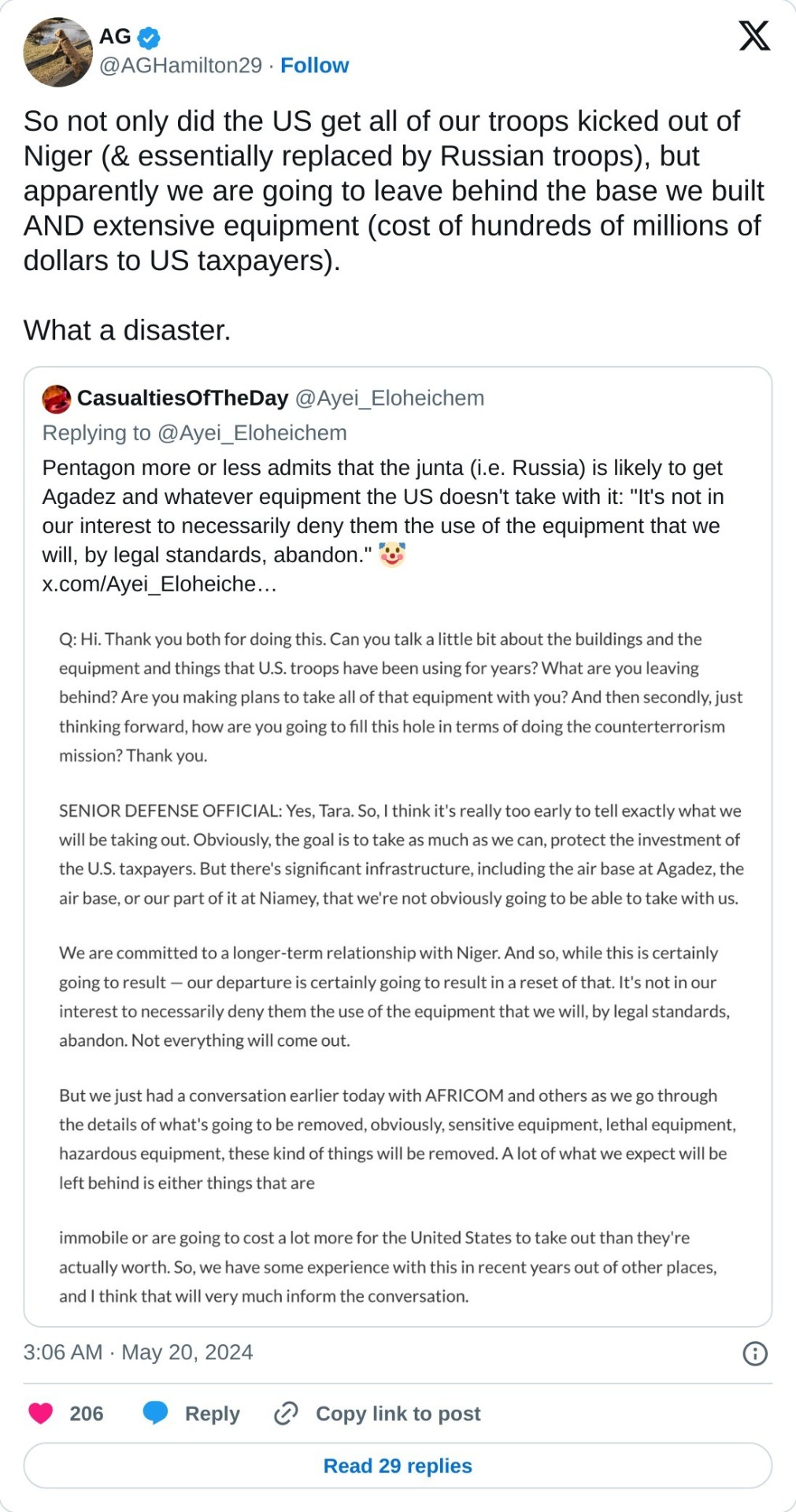#president of the republic
Explore tagged Tumblr posts
Text
I Hope My Indonesian Friends Who Don't Like Prabowo Understand This
I hope my Indonesian friends who don't like Prabowo understand that my intention in congratulating Prabowo on his inauguration as President of the Republic of Indonesia is not because I like him. That is a form of my concern for this republic.
Don't think that I don't know or pretend not to know what he did in the past, human rights violations. I'm trying to be objective you know. He is the president of the republic now and he was able to get this position after winning a democratic presidential election.
My congratulations on his inauguration does not mean I am a nationalist, really. If I were a citizen of another country I would do the same thing too and now I am still a citizen of the Republic of Indonesia (you know what I mean). I care about the country I'm in.
#sofiaflorina#ソフィアフロリナ#indonesia#republic of indonesia#politics#political#i hope you understand#please understand#i am a citizen#i'm a citizen#i am not a nationalist#i'm not a nationalist#prabowo#prabowo subianto#prabowo inauguration#presidential inauguration#president of indonesia#president of the republic#human rights violations#democracy#save democracy#indonesian politics
1 note
·
View note
Text
I really hope nobodys done this yet please please please pelasw

559 notes
·
View notes
Text


#MAGA#president donald trump#god is a republican#kamala harris is evil#Say no to the hoe#Heels up harris#not my pic#donald trump#make america great again#Not my image#suck my freedom#too big to rig#too big to steal#trump#banana republic
431 notes
·
View notes
Text
What we really need is a femininomenon!!!!


Padme Amidala for president 2024
#star wars#padme amidala#padme for president#star wars prequels#star wars padme#star wars padme amidala#anakin skywalker#obi wan kenobi#palpatine#2024 presidential election#star wars memes#star wars movies#the acolyte#star wars clone wars#rots#jedi#the high republic#naboo#captian rex#star wars saga#padme amidala x reader#x reader
376 notes
·
View notes
Text

#blm movement#vote democrat#black lives matter#vote blue#donald trump#trump 2024#democrats#vp kamala harris#kamala for president#kamala khan#harris walz rally#kamala walz#vote harris walz#harris walz 2024#meidastouch#no more banana republic#republicans
55 notes
·
View notes
Text

He’s got spurs, that jingle jangle jingle (jingle, jangle)
#fallout new vegas#fallout new vegas fanart#ncr#fallout new vegas ncr#new california republic#fallout#president kimball#general lee oliver#ncr bear#bears#courier six#fallout fanart#cute art#digital art#procreate#animal art#oh he dancin’#for the bear
77 notes
·
View notes
Text

No Gods, No Masters
#courier six#benny gecko#fallout oc: saorise walton#fallout new vegas#mr house#fallout#caesars legion#caesar#president kimball#ncr#new california republic#fnv#fallout nv#art
116 notes
·
View notes
Text
"Limits of Power: How the U.S. Constitution Restrains Presidential Authority"
The U.S. Constitution does not actually grant the president unlimited power to do anything—even if it might harm the country. Instead, the Constitution establishes a framework of limited powers for the president, balanced by checks and balances from the other branches of government: Congress (legislative) and the judiciary. The founders of the United States, having experienced the dangers of monarchical power under British rule, were careful to avoid creating a single leader with unchecked authority. Let’s break down how this balance operates and examine the specific limitations placed on presidential powers.
1. Defined Powers in the Constitution
The Constitution specifies the powers of the president in Article II, which includes responsibilities like executing laws, commanding the armed forces, making treaties (with Senate approval), and appointing certain federal officials. These powers are broad in some respects, but they come with notable restrictions. For example, while the president is the "Commander in Chief" of the military, only Congress has the power to declare war and control military funding. This means the president cannot unilaterally engage the nation in prolonged warfare without congressional involvement.
2. Checks and Balances from Congress
Congress holds significant power to counterbalance presidential authority. It creates and passes laws, controls federal spending, and has the authority to impeach and remove a president. Impeachment serves as a critical check on the executive branch, allowing Congress to remove a president who is deemed to have committed “high crimes and misdemeanors,” such as abuses of power that could harm the country. Additionally, for treaties and key appointments (such as Supreme Court justices and cabinet members), the president needs Senate approval, preventing unilateral decision-making.
3. Judicial Review
The judiciary, particularly the Supreme Court, has the authority to review the constitutionality of presidential actions through a process called judicial review. Although judicial review is not explicitly stated in the Constitution, it has been a key feature of U.S. governance since the landmark case Marbury v. Madison (1803). This means that if the president enacts policies or takes actions that exceed constitutional limits or infringe on individual rights, the courts can invalidate those actions. This function limits presidential power and helps protect the nation from potential executive overreach.
4. Separation of Powers and Federalism
The principle of separation of powers means that the U.S. government’s authority is distributed among three branches, each with unique functions. The president may act decisively within the executive branch but cannot encroach upon the legislative or judicial branches' functions without facing potential legal or political repercussions. Federalism further diffuses power by dividing authority between the national and state governments, which means states can resist or challenge federal actions they view as unconstitutional or damaging to their interests.
5. Limitations Through Public and Political Accountability
Although not a constitutional mechanism, political accountability plays a crucial role. The president is elected by the people and thus must maintain public support to be re-elected or to maintain political legitimacy. A president acting in ways that clearly harm the country can face intense opposition from both the public and Congress. Public opinion, elections, and media scrutiny act as informal checks on presidential power, deterring actions that could lead to significant national harm.
Conclusion
In sum, the Constitution does not give the president unlimited power to act, particularly in ways that could harm the country. Instead, it establishes a system of limited, defined powers for the executive, checked by both Congress and the judiciary. The intent behind these checks and balances is to prevent any single branch or individual from wielding unchecked authority, thereby protecting the nation’s democratic integrity and the public's interests. The system is not foolproof, and debates over executive power continue, but the Constitution’s structure provides a framework aimed at minimizing the potential for presidential actions that could damage the country.
#politics#donald trump#potus#trump#democrats#republicans#democracy#joe biden#scotus#heritage foundation#traitor trump#trump 2024#fuck trump#president trump#republican#election#trump is a coward#democratic republic of the congo#democratic party#vote democrat#biden#walz#vote kamala harris#kamala harris#vote kamala#kamala 2024#kamala for president#fox news#harris#jd vance
16 notes
·
View notes
Text
The newly elected president of Czech Republic didn’t plan on joining the campaign and did so only because a man he didn’t want to win joined the campaign, so he did as well.
Just to point out what spite can do, this man joined the presidential campaign to stop someone else from becoming a president and right now fucking did it!
458 notes
·
View notes
Text

Imagine the headlines if Trump had left an equipped military base to Russians.
#military#president biden#biden#joe biden#niger republic#niger state#president joe biden#trump#donald trump#president trump#president donald trump#us politics#army#russia#international politics#politics
44 notes
·
View notes
Text
I wonder if liberals would vote if the democratic party was not Zionist but pro-Russian, in short, they would say they support Ukraine and call for a ceasefire, and they would still supply weapons to Russia…
I wonder if they would show such love for Harris/Biden if instead of Israel there was Russia, and instead of Palestine there was Ukraine…
And I wonder if they would also use the argument "But Trump will be worse!" if Ukrainian children were torn into a million pieces…
#free palastine#palestine#democratic republic of the congo#israel is a terrorist state#vote democrat#democracy#democratic party#democrats#free palestine#free gaza#israel#gaza#palestina#harris#kamala harris#harris 2024#vote harris#kamala#election#president#debate#presidential#fuck kamala harris#joe biden#biden#vote biden#president biden#biden administration#2024 election#us election
25 notes
·
View notes
Text
Idk why but it always pisses me off whenever people say Yes Man plans on betraying The Courier
And the so called proof is the line about making him more assertive
The line means nobody but The Courier would be able to give him orders similar to how The Courier took Yes Man from Benny
I dont think intentional betrayal is in Yes Mans programming and its a more likely possibility of House or The NCR or a Lanius controlled Legion betraying The Courier rather than Yes Man
Idk I just always thought the idea of Yes Man betraying The Courier would be extremely out of character for him
#fnv#fallout#new vegas#fallout new vegas#caesar's legion#new california republic#ncr#the ncr#robert house#aaron kimball#general lee oliver#president kimball#yes man#the courier#courier six#courier 6#benny gecko#edward sallow#joshua graham#fnv ulysses#fnv caesar#vulpes inculta
312 notes
·
View notes
Text

#kamala harris is evil#MAGA#USA#President Trump#god is a republican#donald trump#Not my pic#make america great again#too big to steal#banana republic#trump train#not my image#suck my freedom#too big to rig
39 notes
·
View notes
Text

#meidastouch#blm movement#vote democrat#black lives matter#vote blue#donald trump#trump 2024#democrats#vp kamala harris#vote kamala#kamala 2024#kamala for president#taylor swift#swifties#no more banana republic#republicans
26 notes
·
View notes
Note
Can you tell us more about James A Garfield and is there any media of him that you recommend? All I know is the book by Goodyear..
I always say that Garfield was one of the big "What if?" Presidents in American history had he not been assassinated. He was a fascinating character and could have been the transformational leader that propelled the United States through late-Reconstruction and the Gilded Age in ways that the other Presidents between Lincoln and McKinley were unable to do. Garfield was young (just 49 years old when he died), energetic, charismatic, absolutely brilliant, and aggressively progressive. He had ideas and the ability to implement them instead of simply being a steady hand. And, like JFK in a way, he brought his young, attractive family to the White House and that could have helped him lead the country in a different direction than his less engaging contemporaries who immediately preceded and succeeded him like Grant, Hayes, Arthur, Cleveland, and Benjamin Harrison. Garfield also had a somewhat mystical quality to him that I also believe would have captivated many Americans in an entirely new manner than most Presidents. The fact that he was only President for 199 days -- most of which were spent fighting for his life after he was shot -- is one of the great missed opportunities of American history.
For more on Garfield, the C.W. Goodyear biography that you mentioned, President Garfield: From Radical to Unified (BOOK | KINDLE | AUDIO), is the most recent (published in 2023) and fresh look at his life and career. But there are several others that I'd highly recommend checking out:
•Garfield by Allan Peskin (BOOK | KINDLE), was published in 1978 and, for many years, was the best, most in-depth full-fledged biography on Garfield. It's still a must-read, in my opinion. •Dark Horse: The Surprise Election and Political Murder of President James A. Garfield by Kenneth D. Ackerman (BOOK | KINDLE), was published in 2003, and is an excellent look at Garfield's shocking nomination and election in 1880, brief Presidency, and tragic assassination. •Touched With Fire: Five Presidents and the Civil War That Made Them by James M. Perry (BOOK | KINDLE), was also published in 2003. It's not a full biography of Garfield, but a look at the five Presidents who saw combat during the Civil War -- Grant, Hayes, Garfield, Benjamin Harrison, and McKinley -- and how those experiences shaped them. •Destiny of the Republic: A Tale of Madness, Medicine, and the Murder of a President by the always-awesome Candice Millard (BOOK | KINDLE | AUDIO), was published in 2011 and it is the definitive book on Garfield's assassination. It's a detailed illustration of the shooting that wounded Garfield and his brutal, two-and-a-half -month-long battle to attempt to survive his wounds -- a battle that was ultimately lost largely due to the botched medical "care" that the President received after he was shot. Candice's book reads like a novel and it's apparently the basis for the upcoming Netflix series, "Death by Lightning" featuring Michael Shannon, Betty Gilpin, Matthew Macfadyen, and Nick Offerman.
Also, PBS's American Experience released a fantastic, two-hour-long documentary on Garfield's assassination in 2016 called Murder of a President, which was also partially based on Candice Millard's book. I'm pretty biased when it comes to American Experience, which I believe is a national treasure, but Murder of a President is especially good. I don't know if you can watch it directly from the PBS American Experience website right now, but you can find the film on sites like iTunes and Amazon Prime.
#History#James Garfield#James A. Garfield#President Garfield#Garfield Administration#Assassination of James Garfield#Garfield Assassination#Murder of a President#PBS American Experience#Touched With Fire: Five Presidents and the Civil War Battles That Made Them#James M. Perry#Presidents#Dark Horse: The Surprise Election and Political Murder of President James A. Garfield#Kenneth D. Ackerman#President Garfield: From Radical to Unifier#C.W. Goodyear#Candice Millard#Destiny of the Republic#Garfield#Allan Peskin#Presidential History#Presidential Documentaries#1880 Election#Civil War#General Garfield#Gilded Age#Reconstruction
27 notes
·
View notes
Text












RJ-83 in RJ Needs a Tool and RJ Repairs the Firehawk on Star Wars Kids!
#OH LIKE I'M NOT GONNA GIF MY BEST BOY#president of the RJ fanclub over here#:)#rj 83#rj 83 gif#rj 83 yja#young jedi adventures#young jedi adventures gif#yja#yja gif#high republic#high republic gif#lucasfilm#star wars#lucasfilm gif#star wars gif#disney#mine#my gifs#love him#cartoons#disney cartoons#disney gifs
23 notes
·
View notes